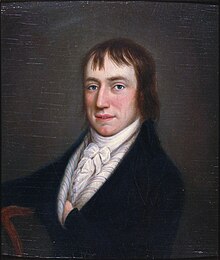nd thee out,
Little flower!--I'll make a stir
Like a great Astronomer.
Modest, yet withal an Elf
Bold, and lavish of thyself,
Since we needs must first have met
I have seen thee, high and low, 20 Thirty years or more, and yet
'Twas a face I did not know;
Thou hast now, go where I may,
Fifty greetings in a day.
Ere a leaf is on a bush,
In the time before the Thrush
Has a thought about it's nest,
Thou wilt come with half a call,
Spreading out thy glossy breast
Like a careless Prodigal; 20 Telling tales about the sun,
When we've little warmth, or none.
Poets, vain men in their mood!
Travel with the multitude;
Never heed them; I aver
That they all are wanton Wooers;
But the thrifty Cottager,
Who stirs little out of doors,
Joys to spy thee near her home,
Spring is coming, Thou art come!



